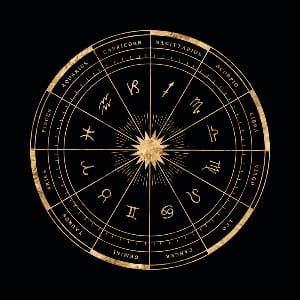Medical astrology (traditionally known in the West as Iatromathematics or Iatromathematica, iatromathematici, or “Doctorly Calculations”) is a branch of astrology. As an ancient medical system, this school of astrology explores the medical schools related to various parts of the human body, diseases, and medicines connected with the sun, moon, planets, and the twelve constellations. Because each astrological sign (along with the sun, moon, and planets) is related to a different part of the human body, medical astrology uses a person’s natal chart to determine the person’s physical, mental, and spiritual health. , a view that reflects current trends in all fields of medicine confirms that optimal health depends on a harmonious balance between these three and encompasses all uses of astrology in health and healing. Whether using a natal chart, a horoscope, or the Decumbiture Chart, the chart must be taken from the place and time when the patient first fell ill and used medically.

Application of astrology to the medical field
The application of astrology to the medical field has very ancient roots. It has always played an essential role in the traditional medical systems of ancient civilizations, such as in India, China, Egypt, and Graeco-Arab medicine (Graeco-Arabic medicine). -Arabic Medicine) is the most representative medical system of medical astrology; however, in the late European Middle Ages and early modern times (about 1450-1700), medical astrology also reached a stage of full flowering and fruition; basically, It is no exaggeration to say that astrology was the theoretical root of everything during this period, and many knowledge systems relied on it and co-existed with it, or used the astrological worldview as a reference. In the case of medicine, astrology assigns the zodiac to govern the various parts of the body, the planets to govern the organs and systems, and the planets to also govern diseases and medicines. The subject of the twelve constellations has many unique uses and advantages. Its primary function is to provide a sign. It must also involve other fields of expertise, such as the theory of humor and herbal medicine.

History
An illustration of the Zodiac Man or homo signorum from 1410, which shows the ancient connection between the twelve zodiac signs and the various parts of the human body.
Applying the theory of constellations (zodiac signs) and the sun, moon, and other planets to medical purposes is a very ancient practice from the Chaldean priest-physicians (2000 BC to 1000 BC). Priest-physicians), and by adopting the theories and medical practices they created, they inspired modern medical theory. Traditional Greek medicine made extensive use and practice of medical astrology. The ancient Greek medical saint Hippocrates (460 BC to 377 BC) is considered the father of modern medicine, and his Hippocratic Oath is the source of all doctors’ oaths. He is a learned astrologer; he was quoted as saying that doctors without knowledge of astrology were better off “calling themselves fools rather than doctors.” The astrological legacy of Hippocrates is a mysterious thing. Still, it is clear that his important conceptual content was developed based on the core principles of astrology, and Hippocrates insisted that his students study astrology. Medical astrology may be considered a specialty of Greek medicine. Socrates said, “Man, know thyself.” The horoscope depicts a person’s essential nature and temperament. It is the key to all diagnosis and treatment in Greek medicine, along with the difficult to understand. Depth and complexity of confidence come together.
Astrology in medicine was in the late European Middle Ages.
However, the most typical period for the practice of astrology in medicine was in the late European Middle Ages (1450 AD) and the early modern period (1700 AD), and the influence of astrology on European medicine originated from the Arab countries. Medical astrology may also be called astrological medicine. Medical astrology was a crucial discipline and profession in the European Middle Ages. During this period, medical practitioners were almost all educated and trained in astrology. They believed that each sign and planet in the zodiac had a role in governing different parts of the body, regulating (controlling) different diseases, and acting as an influence. Because of the effectiveness of different medicines, they introduced astrology into therapeutic techniques to assist in diagnosis, prediction, and even treatment. Medical books of the time included illustrations of the zodiac signs. When diagnosing patients, the image will help remind practitioners that astrology provides information about where the signs and planets have affected the body and identify potential illnesses. The timing of treatment will be consistent with the astrological signs (horoscopes).
Nicholas Culpeper’s method of treatment using astrological charts

Nicholas Culpeper (1616-1654), a famous herbalist and physician in the seventeenth century, relied on astrology and herbal medicine to diagnose patients according to their birth charts and make appropriate treatments for the disease. Treat. His famous proverb is: “Only astrologers are fit to study medicine and a medical man without astrology is like a lamp without oil.”
Psychology and Astrology
Psychological astrology can be defined as a synthesis of psychology and astrology. But nothing could be further from the truth. Each discipline – astrology and psychology – is fundamentally transformed and gains new power by being combined with the other. Interdisciplinary integration has so many connections and potentials that one could easily spend a lifetime exploring the relationship.

In many ways, astrology is the precursor to psychology, as it was one of the early ways humans came to understand their nature. Its premise is that the universe mirrors our inner being, and the ancients systematically observed that the nature and cycles of the planets correspond to human nature and experience.
Astrology in ancient times
Our ancestors were great, but ancient astrology needed to be more complex for what we are capable of today. Today, we should emphasize “ability” because some parts of modern astrology are still bound by ancient dogma. Ancient or medieval astrologers were obsessed with the so-called “good” and “bad” aspects of planetary placements—male stars, evil aspects, detriments, detriments, afflictions, and other ominous omens.
At that time, they realized that human beings would succumb to gradual aging and eventually death. They had little or no concept of “evolution”- personal” spiritual and spiritual growth. As a result, astrology is mainly limited to superficial descriptions of characterizations, fateful events, and ambiguous predictions of good and bad fortunes.
Some scholars argue that ancient astrology at that time was more complex and richer in techniques than what is handed down today.
False cosmic patterns
But this cannot hide the fact that our ancestors were trapped in a pattern of cosmic fatalism and determinism without realizing that life experience, that is, fate, can act as a catalyst for us to learn and change. And learning and changing will, in turn, change our destiny.
The derivation and evolution of psychology and astrology
The technological revolution of the 17th and 18th centuries cast doubt on astrology because the mechanistic paradigm of modern thought could not understand astrology. Due to the renaissance of scientific thought, psychology was born, finally replacing astrology as the primary tool for understanding human behavior.
In the first half of the 20th century, Darwin and, later, Freud introduced the concepts of psychological growth and evolution into the public eye. With no fixed character assumptions and no insurmountable shackles of fate, early psychologists based their theories on what could be observed: the human body and external behavior.
From these early observations, psychologists developed theories of personality. Psychology is not limited to describing personality types. It can also illustrate how people change and develop over time. Developmental psychology developed simultaneously with theories of psychopathology and psychotherapy, with the former focusing on why normal development goes wrong and the latter focusing on the best options for treatment and recovery.
At this point, psychology breaks into areas where astrology has never ventured. By the second half of the 20th century, astrologers began incorporating psychological concepts. Professional astrologers realize that they can benefit from both ends. Under the
Humanistic astrology
Under the leadership of Dane Ruyle, humanistic astrology was born, leading to a renaissance in the late 1960s and 1970s.
By the end of the 20th century, innovators explored how to effectively unify Jungian theory, psychoanalysis, cognitive behavioral theory, and various other modalities into a new hybrid—psychological astrology. This project is still under development.

Traditional astrology describes correlations between human behavior and planetary positions, and these descriptions only scratch the surface of personality traits. Psychological astrology, by contrast, focuses on the inner world, expressed in significantly more detail than in the past.
For example, (psychological astrology) describes the basic needs, stages of development, psychological functions, cognitive structures, inner dialogue, psychic conflicts, unconscious complexes, defense mechanisms, and personality disorders symbolized by astrological patterns—concepts developed before the 20th century. Didn’t even appear.




